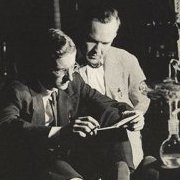I know that I will be seen as starting from a tangent, but follow it through and it becomes relevant.
I know this changes the problem slightly(?) but let's say the host doesn't know where the car is but if the contestant sees the car he can keep it.
One time in three the contestant will win the car at the first opening of a door.
If he doesn't see the car he can decide whether to switch his choice or not.
If his original choice was the car and he swaps then he loses. If his original choice was a goat and he swaps then he wins. So he has a 50/50 chance on his second bite of the cherry and it doesn't (it seems to me under these conditions) matter whether he swaps or not.
The net result is that he will win the car two times out of three. (because of his two bites at the cherry).
Now moving back to the original problem:-
The presenter tries to minimise your chances of winning by taking, and apparently wasting, your chance of winning on the first door opening.
If , at the start, you pick a door and do nothing, the two bites at the cherry increase your chances to 50/50.( You either picked the car or you picked a donkey)
What needs explaining is why always changing your mind on the second door opening improves your chances to two in three.
Well, two times out of three you will have picked a goat.
The door you have seen opened hid a goat. So these two times out of three changing your mind gives you the car.
One time out of three you will have picked the car so changing your mind this one time out of three gives you a goat. (The goat you haven't previously seen).
This is the reason that changing your mind improves your chances from 50/50 to two in three(IMO).





